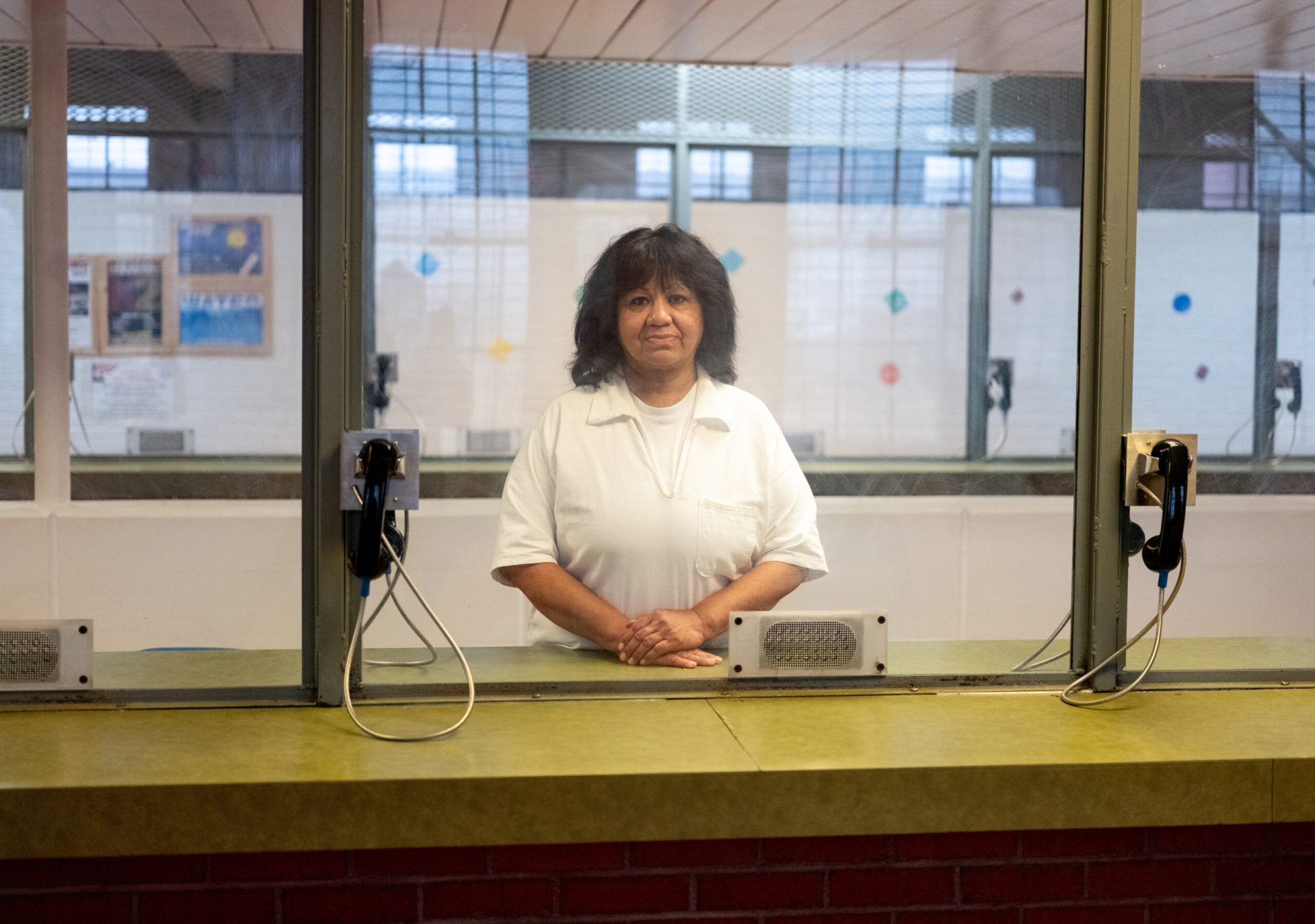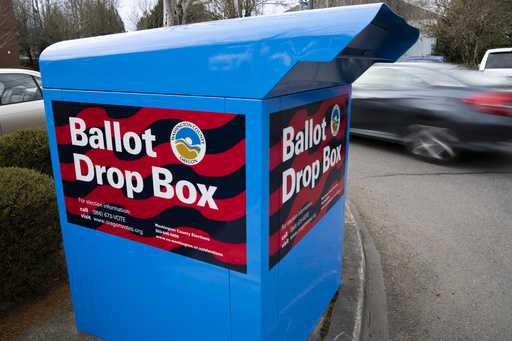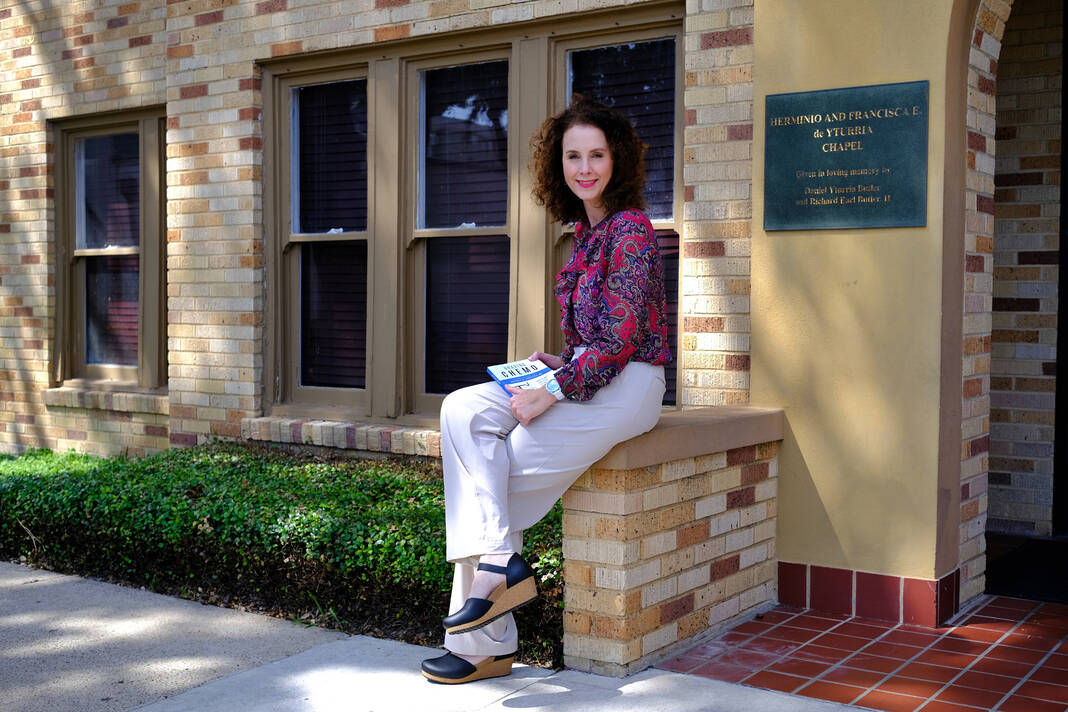McALLEN, Texas (Border Report) -- Volunteers with the Eagle Pass Border Vigil Coalition this week have been learning how to take forensic fingerprints to help identify migrants who died trying to cross the border into South Texas.
They are part of a group of forensic specialists who have been in Eagle Pass this week helping to reduce the overflow of bodies at the Maverick County Sheriff Department's mobile morgue.
There are over 40 unidentified bodies currently in the morgue, the coalition's co-founder Amerika Garcia Grewal told Border Report on Thursday.
Maverick County does not have a medical examiner and the nearest one — in Webb Count — has told them not to send anymore bodies until the ones that are there are picked up, Garcia Grewal said.
 Amerika Garcia Grewal cofounder of the Eagle Pass Border Vigil Coalition. (Sandra Sanchez/Border Report)
Amerika Garcia Grewal cofounder of the Eagle Pass Border Vigil Coalition. (Sandra Sanchez/Border Report)"Unfortunately, this is the situation that we're facing here in Maverick County, and it's untenable. You know, it's quite literally we are overflowing the refrigerator, the portable morgue that we have here. Webb County has said, 'No more bodies from Maverick County until you pick up the ones that you already have.' And you know the other option is to bury people without any identification, and then you'll never know," she said.
Thursday was Day 2 of three days of training for Garcia Grewal and a few other volunteers who showed up before 6 a.m. for training at the morgue, which is little more than a trailer parked 20 miles north of Eagle Pass in a rural part of Maverick County.
“When I found out about this process and how long some of these bodies had been in storage, I asked, you know, why can't we volunteers from the Border Vigil learn how to fingerprint, and so that's actually what I'm doing here today," Garcia Grewal told Border Report.
 Dr. Kate Spradley heads the Texas State University Forensic Anthropology Center and Operation Identification. (Sandra Sanchez/Border Report File Photo)
Dr. Kate Spradley heads the Texas State University Forensic Anthropology Center and Operation Identification. (Sandra Sanchez/Border Report File Photo)Also on hand were agents with the Border Patrol's Missing Migrant Program, and Justices of the Peace.
They were being trained by forensic specialists and doctoral students from the Forensic Anthropology Center at Texas State University, which has a program -- Operation Identification -- that identifies migrant remains and helps to return them to families.
"Primarily, we’re working in Maverick County because that’s where the greatest need is," Dr. Kate Spradley, director of Operation Identification at Texas State University, said. Maverick County "are receiving the most deaths. This is what we do; this is a humanitarian initiative."
Border Report was there in 2022 when Spradley and her team of forensic anthropology students dug up dozens of unidentified remains at the Maverick County Cemetery.
The process is long and involved and many of the remains are in advanced states of decomposition.
Garcia Grewal says her group wants to step up to learn how to take fingerprints so they can start the identification process quickly.
Fingerprinting is one of the fastest and easiest way to ID remains, she said.
"A volunteer like myself, just a regular community member, can come and do that," she said. "So that we can take fingerprints as close to the time of death as possible."
Garcia Grewal said she hopes that her group will be called by law enforcement when a body is found so they can swipe fingerprints that can then be entered into NAMUS -- the National Missing and Unidentified Persons System. The database is a clearinghouse of information and resources for missing, unidentified, and unclaimed person and is one that migrant families and groups helping them utilize to try to match their missing loved ones.
 Volunteers work to identify migrant remains this week in Eagle Pass, Texas. (Photo Courtesy Eagle Pass Border Vigil Coalition)
Volunteers work to identify migrant remains this week in Eagle Pass, Texas. (Photo Courtesy Eagle Pass Border Vigil Coalition)"Somebody loves this person. Somebody is missing them, somebody is looking for them," she said.
Other identification methods, such as DNA testing, require a familial match, cost thousands of dollars, and take time.
Some of the unidentified remains have been in the morgue since 2020, highlighting the urgent need for community intervention, she said.
"It's actually been quite fascinating to watch, because they have a number of tools that they use in order to get fingerprints from the decomposed bodies that have been here," she said.
"Operation ID, as presented by Dr. Kate Spradley from Texas State University and Eddie Canales regarding Brooks County, inspired me to help relieve grief by supporting their efforts and getting involved myself," said Mike Garcia, co-founder of the Border Vigil and another volunteer who was being trained.
Canales, who headed the South Texas Human Rights Center, was an advocate of helping families to find their lost loved ones and reuniting them with identified remains. He died July 31 of cancer.
Garcia Grewal says by identifying remains, families of migrants not only get closure but many save thousands of dollars in "extortion fees" that cartel and gangs try to charge them claiming they still hold their loved ones as hostages and ransom for money.
"So by confirming that the family member they love has passed away, with a scientific confirmation being cut down on those extortion cases and bring closure to these families, quite literally all over the world," she said.
The Eagle Pass Border Vigil Coalition holds a monthly vigil in memory of the migrants who died trying to cross the border from Mexico.
Sandra Sanchez can be reached at SSanchez@BorderReport.com.
 (2).png)
 2 months ago
68
2 months ago
68








 English (US)
English (US)